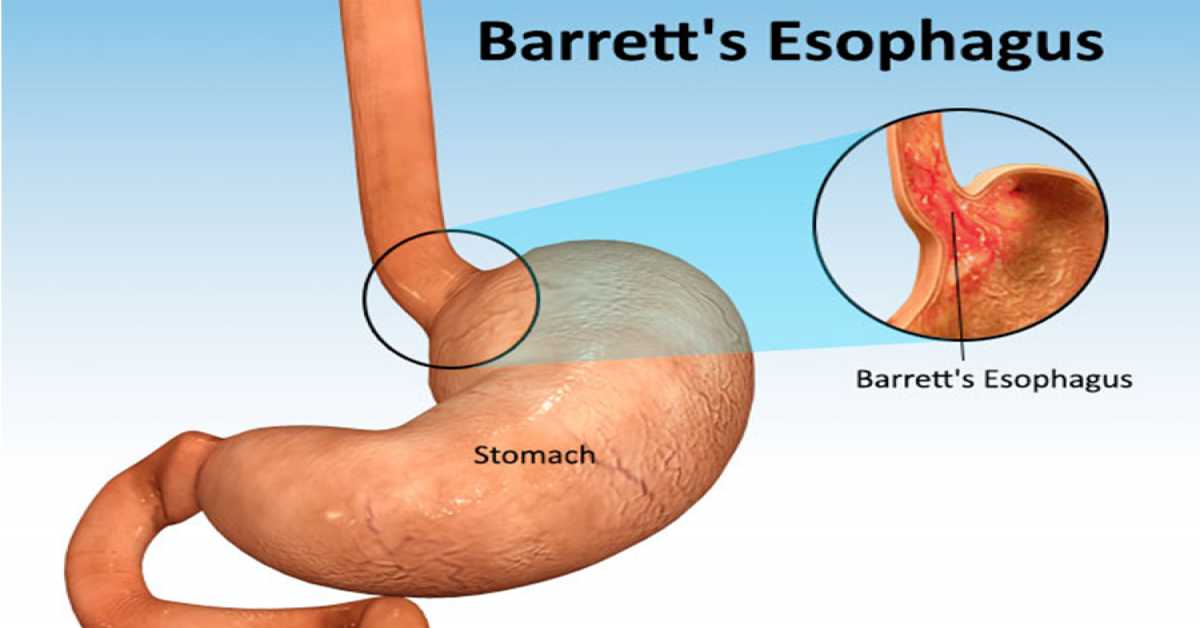In Barrett's esophagus, tissue in the tube connecting your mouth and stomach (esophagus) is replaced by tissue similar to the intestinal lining.
Barrett's esophagus is often diagnosed in people who have long-term gastroesophageal reflux disease (GERD) — a chronic regurgitation of acid from the stomach into the lower esophagus. Only a small percentage of people with GERD will develop Barrett's esophagus.
Barrett's esophagus is associated with an increased risk of developing esophageal cancer. Although the risk is small, it's important to have regular checkups for precancerous cells (dysplasia). If precancerous cells are discovered, they can be treated to prevent esophageal cancer.
Symptoms
The tissue changes that characterize Barrett's esophagus cause no symptoms. The signs and symptoms that you experience are generally due to GERD and may include:
Frequent heartburn
Difficulty swallowing food
Less commonly, chest pain
Many people with Barrett's esophagus have no signs or symptoms
If you've had trouble with heartburn and acid reflux for more than five years, ask your doctor about your risk of Barrett's esophagus.
Seek immediate help if you:
Have chest pain, which may be a symptom of a heart attack
Have difficulty swallowing
Are vomiting red blood or blood that looks like coffee grounds
Are passing black, tarry or bloody stools
Causes
The exact cause of Barrett's esophagus isn't known. Most people with Barrett's esophagus have long-standing GERD.
In GERD, stomach contents wash back into the esophagus, damaging esophagus tissue. As the esophagus tries to heal itself, the cells can change to the type of cells found in Barrett's esophagus.
However, some people diagnosed with Barrett's esophagus have never experienced heartburn or acid reflux. It's not clear what causes Barrett's esophagus in these people.
Risk factors
Factors that increase your risk of Barrett's esophagus include:
Chronic heartburn and acid reflux. Having GERD that doesn't get better when taking medications known as proton pump inhibitors or having GERD that requires regular medication can increase the risk of Barrett's esophagus.
Age. Barrett's esophagus can occur at any age but is more common in older adults.
Being a man. Men are far more likely to develop Barrett's esophagus.
Being white. White people have a greater risk of the disease than do people of other races.
Being overweight. Body fat around your abdomen further increases your risk.
Current or past smoking.
Complication:
People with Barrett's esophagus have an increased risk of esophageal cancer. The risk is small, even in people who have precancerous changes in their esophagus cells. Most people with Barrett's esophagus will never develop esophageal cancer


